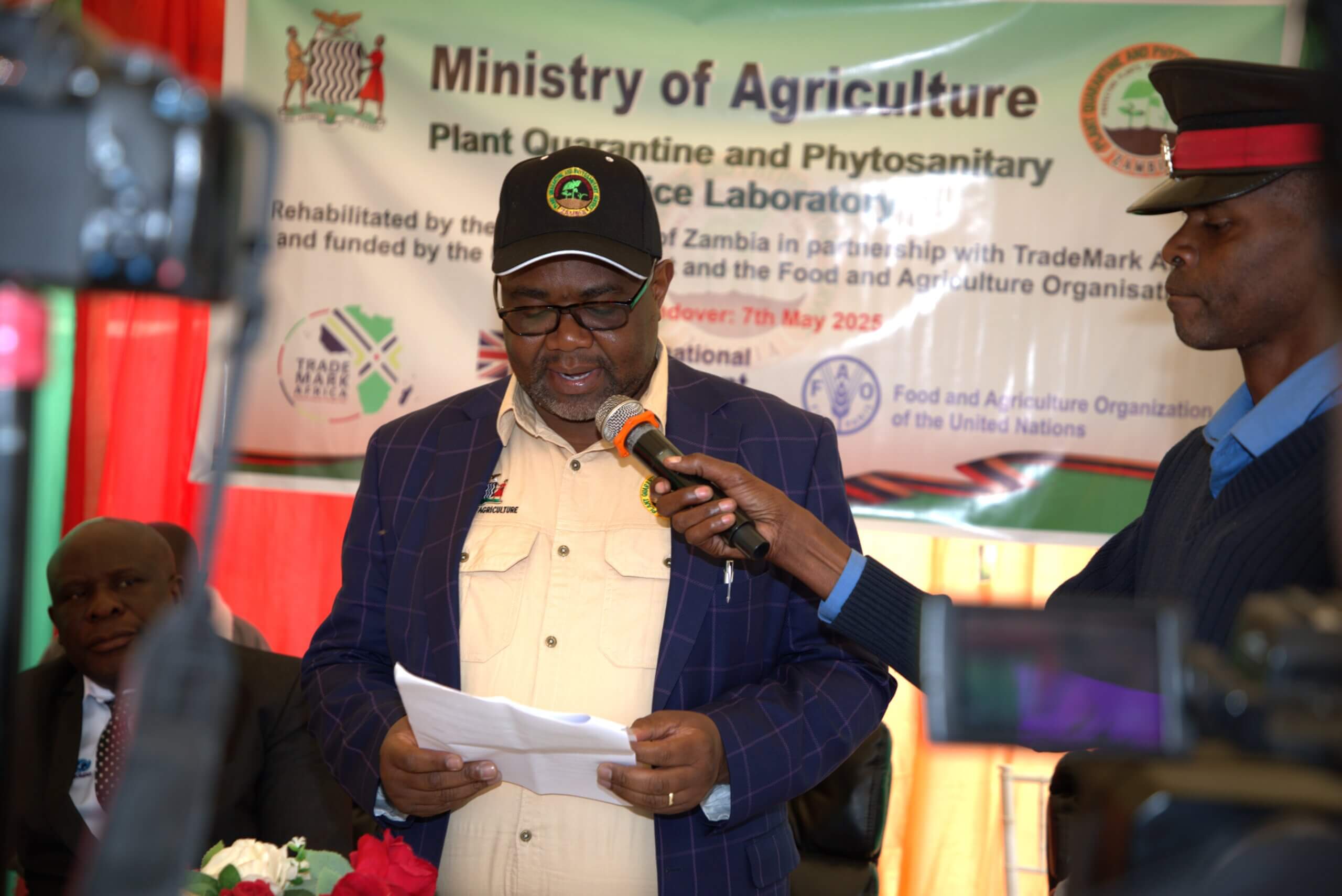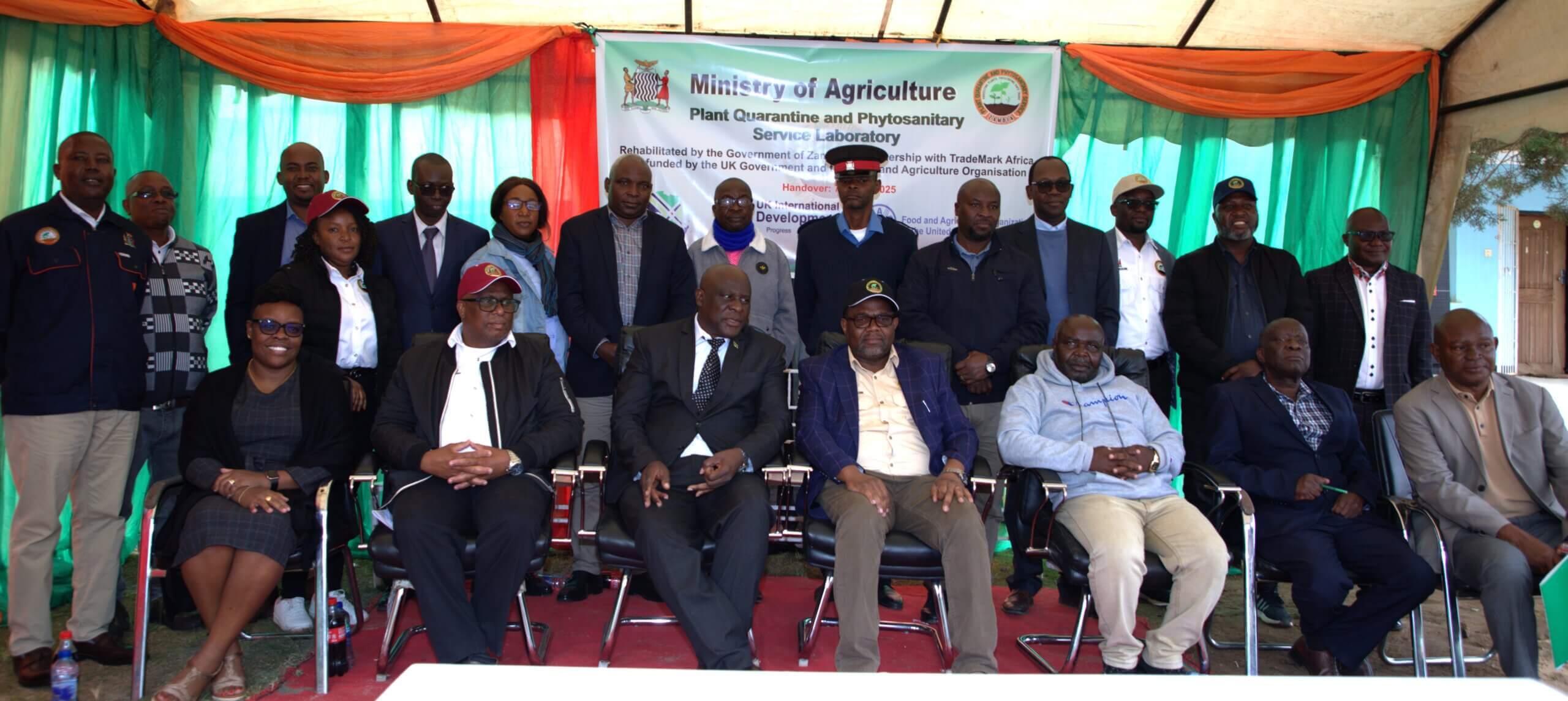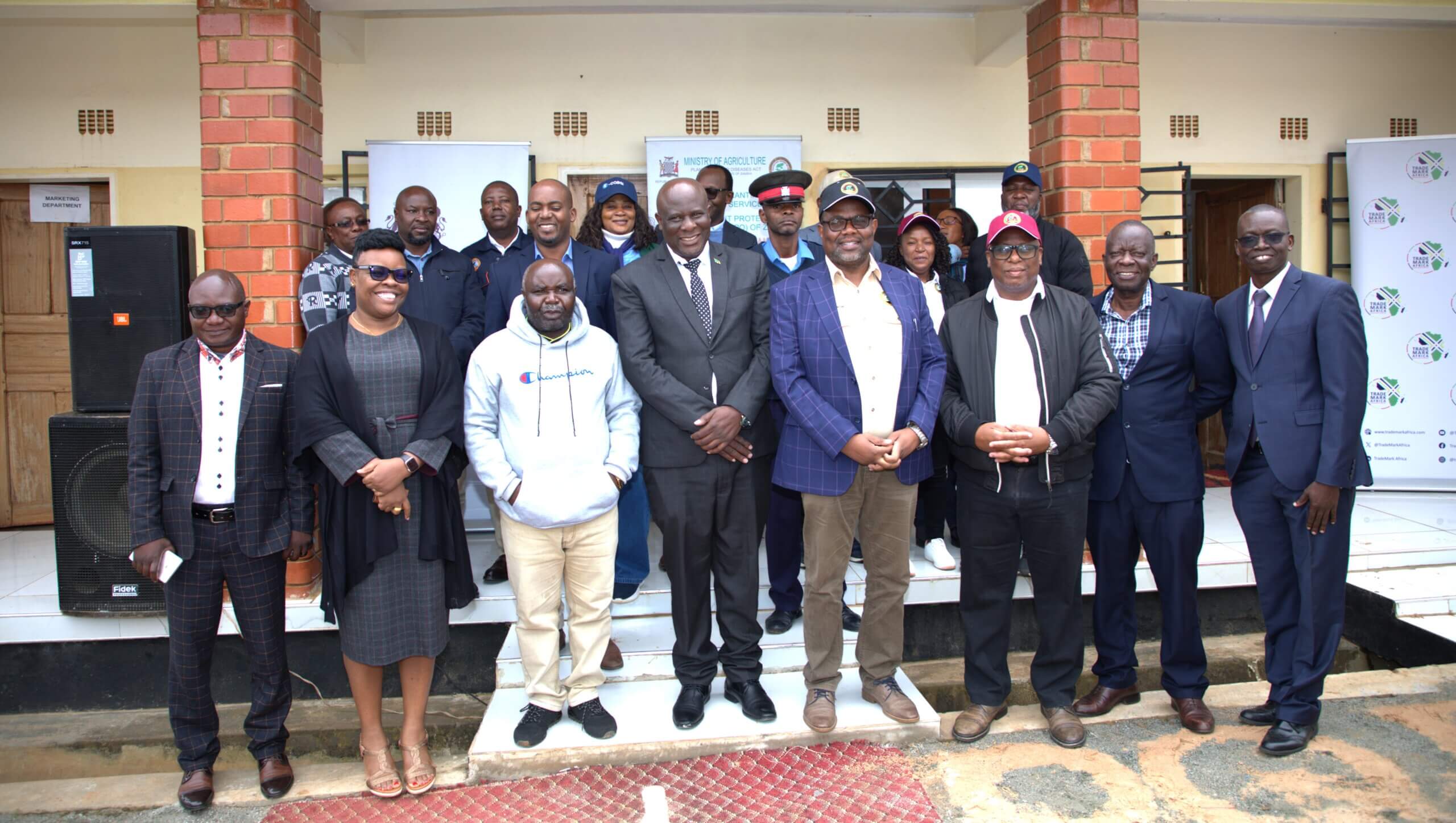Nakonde, Zambia, 07 May 2025 – Zambia has taken a major step to safeguard its food security and regional agricultural trade following the commissioning of a refurbished and fully equipped Plant Quarantine and Phytosanitary Service (PQPS) laboratory at Nakonde One Stop Border Post (OSBP).
The newly rehabilitated plant health lab on the border with Tanzania will accelerate the screening of maize imports and safeguard national food supplies following what is touted as the country’s worst drought in four decades (in 2023/2024). The drought severely impacted maize production and left nearly half the population at risk of food insecurity, adversely affecting 84 of its 116 districts across several provinces, according to FAO.
The lab was rehabilitated and equipped by the Government of Zambia in partnership with TradeMark Africa (TMA) and funded by the UK Government to the tune of Zambian Kwacha 3.8 million (US$136,000). It is fitted with state-of-the-art diagnostic equipment—including a Polymerase Chain Reaction (PCR) machine, microscopes, centrifuges, and ELISA testing kits. These kits are designed to rapidly test and detect diseases such as the Maize Lethal Necrosis Disease (MLND). The lab has also been equipped with solar backup power, an improved water system, and air conditioning, which ensures that operations continue uninterrupted, even during power outages or extreme weather conditions.
The Permanent Secretary responsible for technical services in the Ministry of Agriculture of Zambia, John Anthony Mulongoti, who commissioned the laboratory, acknowledged that enhancements to the lab could not have come at a better time, with Zambia prioritising maize imports from surplus-producing neighbouring countries such as Tanzania.

“This laboratory is an important line of defence for Zambia’s food security. With the right tools and infrastructure now in place, Zambia can now ensure that imported plants and plant products are both safe and fast-moving and enhances our capacity to respond quickly to threats such as pest outbreaks, while maintaining efficient trade flows,” the Permanent Secretary said.
As maize imports surged in response to drought-induced domestic shortfalls, Nakonde OSBP emerged as an important lifeline for trade in grain, especially maize. However, previously the clearance would take up to 72 hours or more as samples were sent to the capital city of Lusaka. With the lab now operational, testing times are expected to fall to an average of 30 hours, significantly reducing turnaround time for urgently needed maize consignments.

The facility’s launch comes amid heightened concerns over the potential regional spread of the Maize Lethal Necrosis (MLN), a highly contagious viral disease that devastates maize crops, potentially occasioning up to 100% yield loss in farmers’ fields. The maize trade between Zambia and Tanzania presented an opportunity to see areas needing phytosanitary collaboration and cooperation in the quest to feed into regional standards alignment. To kick start enhanced collaboration and cooperation, Zambia’s Plant Quarantine and Phytosanitary Service (PQPS) and Tanzania’s Plant Health and Pesticides Authority held bilateral talks in April 2025 in Nakonde. The two agencies already agreed to harmonise phytosanitary protocols in a number of aspects such as diagnostics regarding pests of common interest, surveillance and others in May 2025. The agencies further shared high-performance portable testing tools for rapid diagnostics. These measures are expected to enhance coordination, restore trust, and facilitate smoother cross-border trade.

TradeMark Africa’s Regional Director for East and Central Africa, Monica Hangi, underscored the broader significance of the project, noting; “Safe trade, efficient border processes, and strong phytosanitary measures are the pillars of thriving regional trade flows and economic development, and we are proud to partner with Zambia and the UK Government in this regard. By enhancing Zambia’s plant health testing and diagnostic systems, we are not only responding to the immediate food security challenge but also laying the foundation for long-term agricultural trade and resilience.”
















